Morphemes: Classical Roots in Language Arts
Did your young teen lose out on learning this past year? Have intellectual skills suffered from the loss of stimulation? Help your child boost vocabulary and thinking skills with a proven self-paced program created by a veteran secondary English teacher, used successfully by thousands of students in public and independent schools, and acclaimed by homeschooling parents.
It’s Not Greek to Me! is an out-of-the-box program – ready to launch when you open the package. Everything needed is there – a Student Book with learning activities and workspace; a flash drive with a self-paced PowerPoint instruction for each of the twelve lessons; and an Instructor’s Manual with all activities answer keys, lesson tests, lesson test keys, and a quick grading scale template.
“This program is very well laid out. I like that this program can be completely self taught by using the thumb drive or the parent can go through it with the student.”
“This is an important and time-efficient way to learn new vocabulary and improve reading comprehension.”
In the English language, we build many of our words with Greek and/or Latin morphemes.
- over 40% of all English words involve Greek morphemes
- over 50% of all English words involve Latin morphemes
- over 90% of all English science, medical and engineering terms involve Greek and/or Latin morphemes
The Morphemes courses empower vocabulary development in a one-two punch and provide preparatory SAT testing support. This flexible learning tools is not only cost-effective but also convenient and accessible. Recommended for students in grades 7 through 12, teacher and student resources allow for broad application in the classroom or a homeschool environment.
Just as in construction, the more building blocks available, the more complex the structures can be. Morphemes are the building blocks of language; therefore, the more Greek & Latin root words you understand, the more complex language you can analyze and master.
A Program that Guides Students to Building
The Morphemes mini-courses begin by stimulating and incorporating students’ existing and inert morpheme knowledge through multiple modalities, engaging students through visuals, auditory communication, and tactile/kinesthetic learning. Most students are unaware of their own great store of morpheme knowledge waiting to be unlocked, released, and connected. This program provides the key.
Ready To Teach suggests beginning with the 12 lessons (~140 morphemes) of It’s NOT Greek to Me! and following the next year with the 18 lessons (~200 morphemes) of Latin and Loving It! Each mini-course includes a carefully curated selection of the most used morphemes from that language.
Both mini-courses lead learners to activate and link their prior knowledge to master new vocabulary. This process builds academic confidence and contributes to continued growth as students transfer knowledge and skills into their reading in other academic areas. Instructional activities involve viewing, reading, writing, talking, listening, and making study cards to fire neurons in all three brain pathways to provide all types of learners opportunities for comprehension and success.
Comprehensive Course Components
Programs of both It’s NOT Greek to Me! and Latin Lives in Your Vocabulary! provide materials for both teacher and students:
- The soft back, 126-page Instructor’s Manual includes
- complete lesson plans
- lesson test and test keys
- keys to all student activities
- pre-made flash cards for all morphemes
- a student-involvement bulletin board idea and graphic
- The soft back, 126-page Student Book includes
- designated space for each lessons and its notes set of lesson notes
- designated space for all lesson activities, including
- analyzing words
- synthesizing words
- creating words
- developing context clues reading skills
- a serial mystery story presenting morpheme-based words in context
- a set of 12 color pages for making study cards for each lesson
- A USB flash drive provides self-paced, computer-based PowerPoint instructional slides for each of the 12 lessons.
To view a sample of the PowerPoint lessons, you are invited to download either or both of the following:
- the Lesson One PowerPoint of It’s NOT Greek to Me!
- the Lesson One PowerPoint of Latin and Loving It!
- Read Only Sample Latin Instruction (.pptx).
After downloading, once opened click “Read Only” to play.
Multiple Benefits of Morpheme Studies
Students benefit from the opportunity to further develop their language skills with the Morphemes mini-courses in either an independent or group setting, Program learning activities allow them to explore, decode, and expand their vocabulary in an interactive, multi-modal learning style. Both classroom teachers and homeschooling parents report increased academic confidence and pure learning enjoyment among the program results.
What Homeschooling Educators Say
“I highly recommend this program. It’s a fantastic introduction to vocabulary in a way that will allow your student to understand language far beyond the words introduced in this program. Excellent for writers, test prep, or anyone who wants to speak and listen with knowledge and understanding.”
— Lisa N., Homeschooling Parent, SD
“What I love about the program is it fits into our homeschool day. My son works on it for 30-40 minutes. I also liked that once he knew what to do, he could do the workbook pages on his own. Having the study cards was a huge help.”
— Linda B., Homeschooling Parent, TX
“This study has the flexibility to be done fairly independently by the student using all the support materials, taught by the parent to children in their homeschool, or used in a group environment. We had no idea that it had this flexibility, but are excited to have it considered as part of a class at our local homeschool group.”
— Dawn O., Homeschooling Parent, KY
“I was most impressed with this program because it required my teenager to think. Memorizing new morphemes for each lesson was not enough. The program required him to apply that knowledge to new words (both real words and make-believe words). It’s NOT Greek to Me! is more than just a vocabulary program; it is a thinking program!”
— Cristi S., Homeschooling Parent, AZ
“I have used this program personally with over 100 students and I am astounded at the results! Our verbal SAT scores increased significantly. In over 30-plus years of coaching SAT, I have never seen a better vocabulary resource.”
— Dr. James S., SAT coach and author of For Such a Time as This SAT Preparation Curriculum, PA
What Classroom Educators Say
“This program empowered my 10th-grade students with a broad spectrum of linguistic knowledge to excel on standardized tests and in more advanced classes.”
— Christian S., Secondary English
“Middle School students whose English studies included these morpheme lessons scored significantly higher on the vocabulary portion of standardized tests than students in prior years who had not had access to them.”
— Dr. Elaine J., Middle School Administrator
Frequently Asked Questions
What is a morpheme?
A morpheme is the smallest unit of meaning in a language. We often call them roots, prefixes, and suffixes.
Does the program involve a lot of memorization?
No. Rather, it involves a lot of mental connections. Take the word triskadecaphobia:
TRI – as in tricycle and triangle (three wheels, three sides)
DECA – as in decade (ten years)
PHOBIA – a fear of
A fear of ten and three (10 + 3 = 13) or fear of the number 13. Students activate and link prior knowledge, use that knowledge to analyze word parts, and then synthesize a possible meaning. When students check their possible meanings against a dictionary (hard copy or online), they are on target 90% or more of the time. Students also use their knowledge to create new words. Can you analyze the morphemes and synthesize a meaning for the student-created microarchaegynophobiac?
Do I need to know Greek and Latin to teach these materials?
No. These programs focus on English meanings, not the teaching of a foreign language.
Does it make any difference whether you do Greek or Latin first?
Not really. But the author strongly suggests beginning with the Greek, as those 12 lessons include morphemes that students seem to recognize more easily and have more fun manipulating. Once the 12 Greek lessons are completed, students have mastered the lesson format and process, and the 18 Latin lessons seem to go more smoothly.
Will these programs teach a student Greek and Latin?
No. These programs teach the analyzing of English words by using word parts that come from Greek and from Latin.

